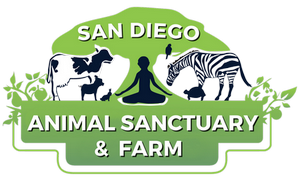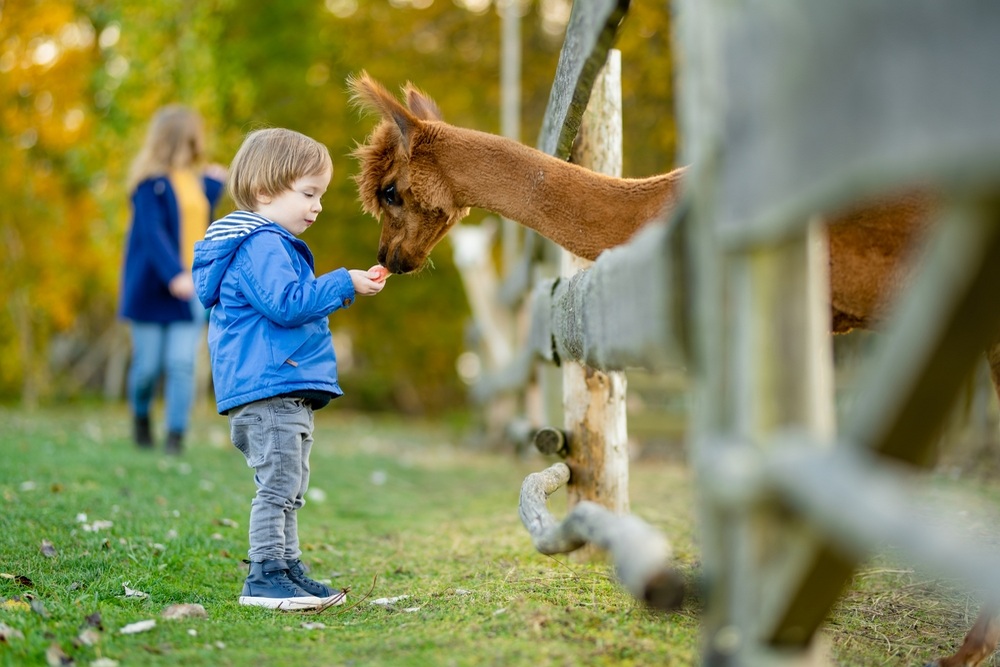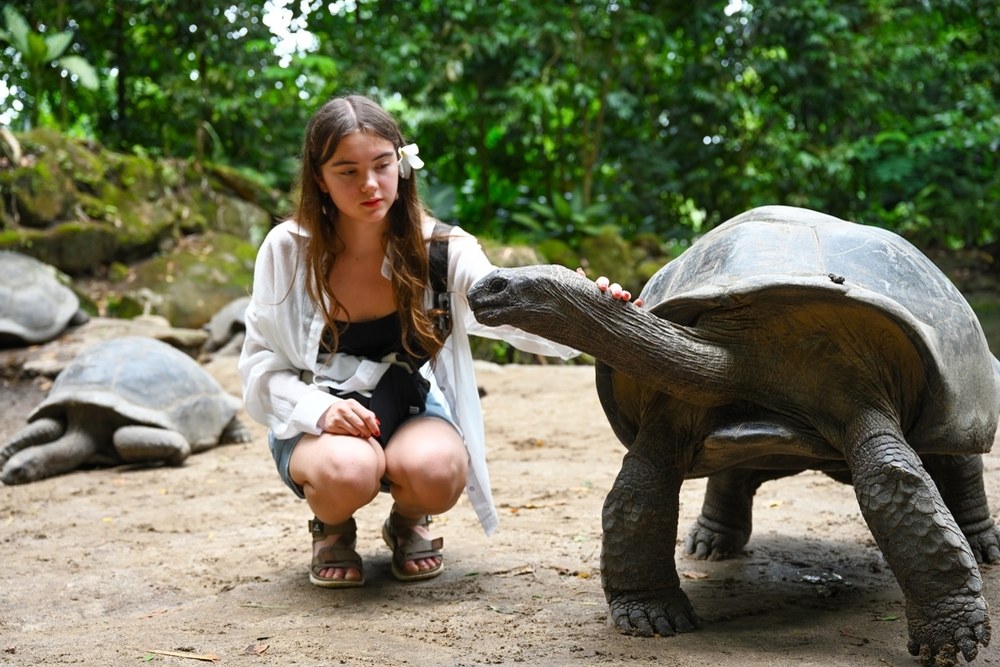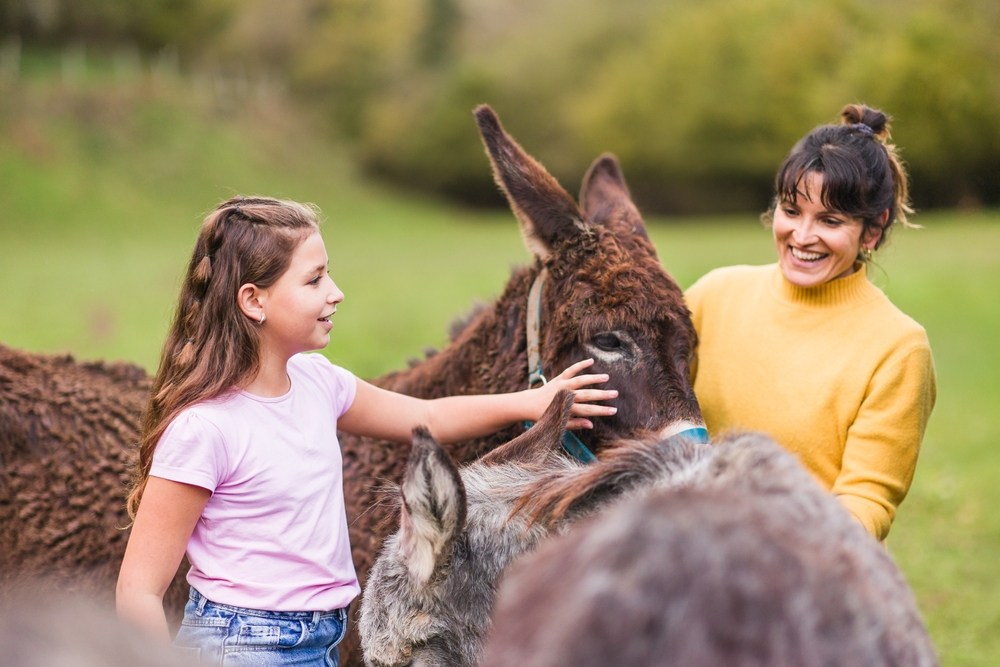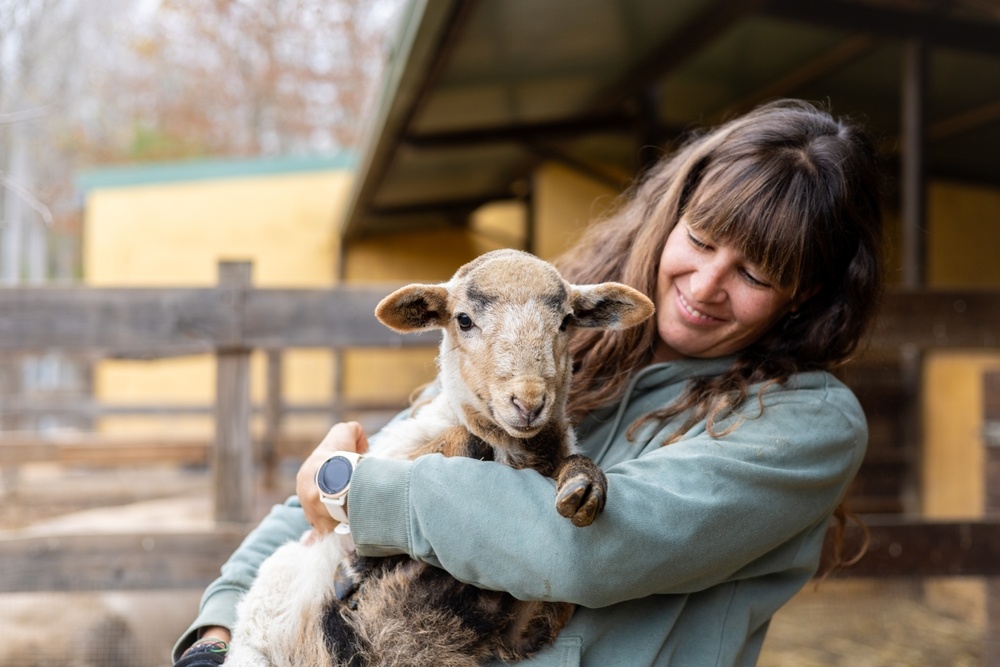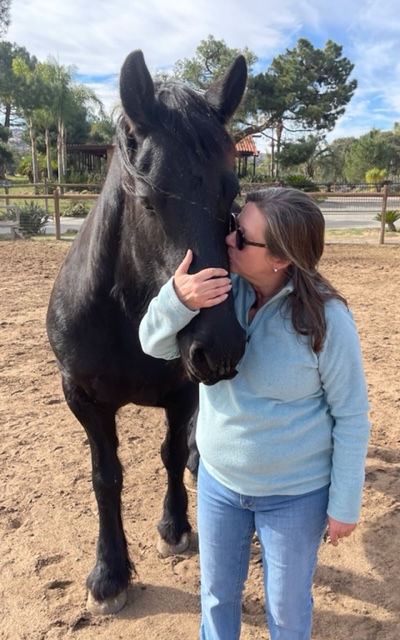
How a dream became the San Diego Animal
Sanctuary and Farm
San Diegan Agnes Barrelet said her life changed 10 years ago after seeing the Matt Damon movie, “We Bought a Zoo.” The San Diego Animal Sanctuary and Farm™ started on 20 acres almost a decade ago as a dream she had. She dreamed of a beautiful place in nature where families could come to spend quality time together. She dreamed of happy animals living freely and without fear or stress.
She dreamed of giving people a unique experience, spending time with animals they may not otherwise get to enjoy. Agnes brought her vision to life in the hills of Alpine, rescued over 200 animals in need of a home over the last 8 years and established biological gardens and orchards to provide for the animals and the public.
“Our guests immerse themselves in the peacefulness of the farm. It helps them recharge and reset, take a step back and reflect. It also provides a safe haven to women in need of plenitude. It’s a place of love and peace often called a hidden gem.”
The support of the community
Nurturing Hope and Resilience
The organization is a 501(c)3 non-profit corporation with EIN # 20-4859019, and revenues to maintain operations are generated primarily through visits to the farm, community events, donations, and its most important event of the year, the annual fundraiser gala. The farm has overcome numerous obstacles since its inception, including the COVID-19 pandemic, the devastating Valley Fire, and now inflation. The support of the community allows the farm to strengthen, grow, and thrive for generations to come.
Sustainable Farming Practices
Connecting People and Nature
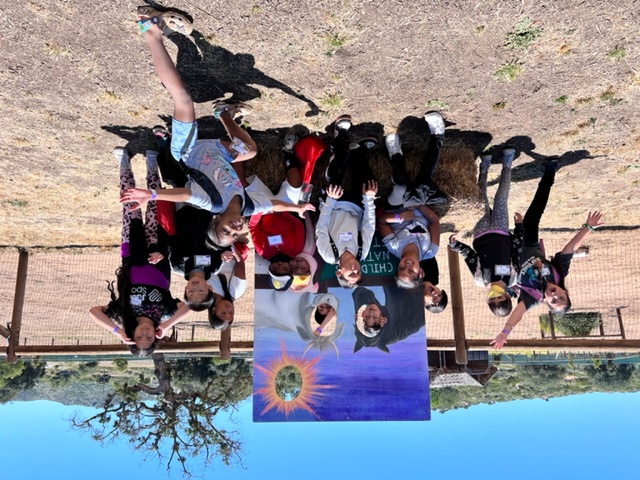
Farm of Compassion: Nurturing Minds and Hearts
The farm, which is open to the public seven days a week from 10am to 5pm, also teaches children about the importance of compassion, respect, and patience. The farm is a grounding space for children and adults alike, where disconnecting from the digital world allows for full immersion into the present.
As the organization grew and evolved, it developed programs such as on-site field trips, school presentations, and private camps to promote experiential learning and core memory experiences all year round. In 2023 alone, the farm’s educational programs reached just under 3,000 students. The farm was honored to work with the Boys and Girls Club, the YMCA, different homeschool groups, Make-a-Wish Foundation, and the Children’s Museum in Escondido, just to name a few.
Fostering Human-Animal Connections
The organization also is partnering with AMR, Sharp HealthCare, Rady Children’s Hospital, Saint Madeleine and Sophie’s Center and other organizations to provide a variety of opportunities for the community. Recently, the Farm has hosted a hospice patient, who’s final wish was to spend the day with animals. It was a heart-warming day full of love, and animal bonding. For a few hours each week day, the Farm has special needs adults volunteering their time by helping the maintenance team keep the grounds looking nice for guests and safe for the animals. Rady Children’s Hospital held their team building day at the Farm, where they helped the team in a variety of tasks, including harvesting greens and feeding the tortoises. These partnerships are vital not only for the community, but for the Farm to continue its mission of the human and animal connection.
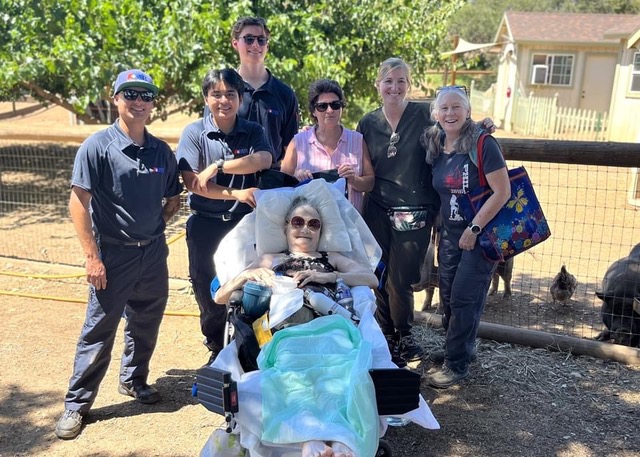
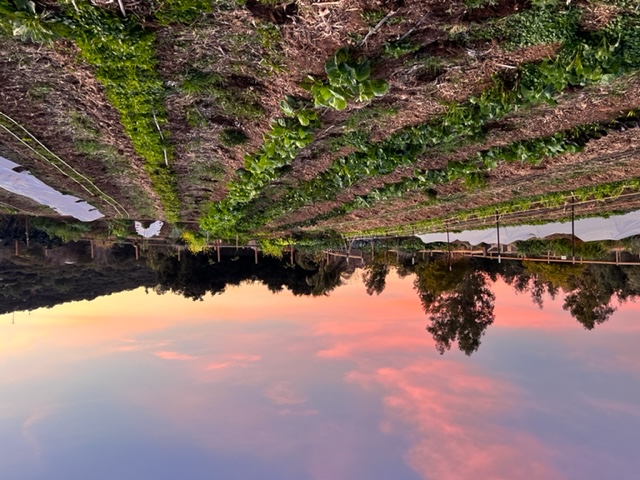
Nourishing the Land and Community
In 2023, the regenerative, biological and no-till farm fully developed its 2-acre garden after years of soil preparation. The 20-acre farm has been free of all pesticides and chemicals since 2016. The compost is made on-site from greens, browns and manure collected from all the animals throughout the 20-acres. The farm also use an industrial size vermi-composting bin to collect castings and enhance its soil. The results are fresh, nutritious and tasty fruits and vegetables available to its rescued animals and the community. Throughout the farm, orchards, groves and food forests have been designed and planted to contribute in feeding the community fresh, healthy and tasty produce. The farm produces over 50 varieties of biologically grown fruits and vegetables while capturing carbon thanks to composting, crops rotation and soil management making it a desirable carbon sink.
